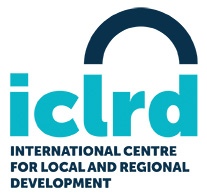2010 Conference >> Session 1|Session 2|Session 3|Session 4
Thursday 21 January 2010
This session will explore how the competitiveness of regions and places is as much dependent on social and community qualities as natural and infrastructural endowments.
4.30 Welcome by Chair ![]()
Andy Pollak, Centre for Cross Border Studies
4.40 Partnership with Local Communities: New Roles for the New Councils in Northern Ireland (Abstract) (PDF) ![]()
Wesley Shannon, Director Local Government Policy Division, Department of Environment, Northern Ireland
5.00 Service Delivery for Citizens in Challenging Economic Circumstances: New Attitudes and Approaches in Provision of Shared Services (Abstract) (PDF) ![]()
Hubert Kearns, County Manager, Sligo County Council
5.20 Efficiencies in Service Provision through Spatial Planning: The Role of Information in Building Inter-jurisdictional Cooperation (Abstract) (PDF) ![]()
Charlotte Kahn, Senior Director of The Boston Foundation’s Indicator Project
Holly St. Clair, Data Services Director, Metropolitan Area Planning Council–Boston
5.40 Round-Table Discussions / Q&A ![]()
6.00 Concluding Observations – Day 1
Professor Rob Kitchin, Director, National Institute for Regional and Spatial Analysis, NUI Maynooth
Denis Rooney CBE, Chair, International Fund for Ireland
8.00 Reception and Conference Dinner
After dinner speaker: Dr. Tim O’Connor, Secretary-General to President McAleese’s Office and former Southern Joint Secretary of the North/South Ministerial Council
Online Follow-up Discussion
Questions:
1. What changes, if any are required at government level (local, regional and/or national) to redress the current economic climate?
2. What opportunities exist for developing a shared services agenda? In terms of governance, are there specific issues that need to be addressed to faciliate such an agenda?
3. What role has data to play in driving a shared services agenda? Are there specific indicators required to support such an agenda? And if so, how best can these be collated?
